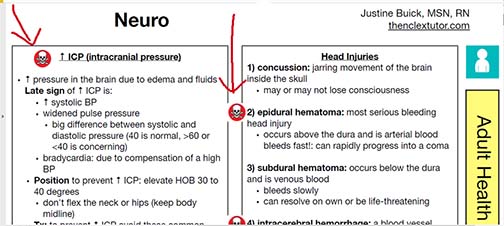Prioritization NCLEX Questions are extremely common on the NCLEX exam. They are worded like this:
Who should the nurse see first?
Who should the nurse call back first?
Who should the nurse assess first?
Who needs immediate intervention?
Which client statement would be a priority to address first?
Which client would the nurse report to the health care provider immediately?

There are probably a hundred different ways to word this type of question. But the CONCEPT is always the same: who is having an immediate complication or the highest risk of a complication?
Sometimes the answer is pretty obvious. Other times it seems like no one is unstable. And even worse, they all seem unstable! How do you decide?
Should you use ABCs to answer questions?
We have all heard of using ABCs to answer these types of questions. However, that just doesn’t cut it anymore. Just because someone is having some dyspnea doesn’t automatically make it the right answer. Are you familiar with COPD? Those clients are always short of breath. They can wait.
These types of questions are such a big deal that I made a special section in my Nugget Pages book to show you the immediate complications with a skull and crossbones to tell you it’s BAD.

Most people can spot an airway or breathing problem, but do you know what the circulatory problems are of ABC? Students frequently say “bleeding” as an answer and that’s about it. But there are TONS of circulatory problems such as hypertensive crisis, MI or CVA.
I made this video to show you how I answer “who do you see first” questions. Practicing these types of questions requires you to have a good understanding of basic nursing content. If you haven’t studied in a while or don’t know the basic complications, you will have an extremely difficult time with these types of questions. You have to know normal signs and symptoms in order to pick out what’s abnormal or unexpected (which is usually the answer in a “who do you see first” question).
Recognizing Complications
Can you name at least 5 immediate complications you should be aware of off the top of your head? A good tip to be able to do this is to:
1) name a system, then
2) name the complication
For example, I will choose the NEURO system. And I will say that a) increased ICP and b) intracranial bleeds are immediate complications. There are more, but this is a good way to start. Can you name the sign/symptoms of these complications? If you can, then great! Because you want to be able to recognize these complications quickly. If you can’t, then you need to start studying!